November 16, 2020 | David Beaudouin, MA, MA
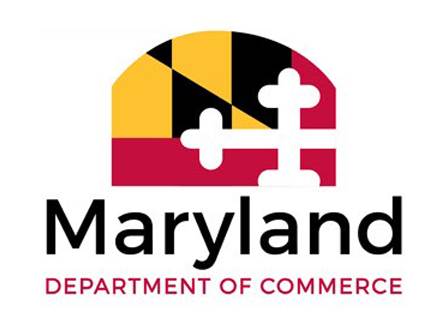 $3 Million Will Establish the Dr. Richard and Kathryn Taylor Professorship in Neurology and the Charles Gordon Smith Endowed Professorship for HIV Research
$3 Million Will Establish the Dr. Richard and Kathryn Taylor Professorship in Neurology and the Charles Gordon Smith Endowed Professorship for HIV Research
University of Maryland School of Medicine (UMSOM) Dean E. Albert Reece, MD, PhD, MBA, announced today that the school has been awarded $1.5 million in matching funds from the Maryland E-Nnovation Initiative Fund (MEIF), administered by the Maryland Department of Commerce. The funds, when combined with private philanthropy, has allowed the creation of two new endowed professorships – one in the Department of Neurology and one in at the Institute of Human Virology (IHV). As part of its goal to attract and retain top faculty and foster the development of new technologies and therapies, the School of Medicine had requested that the funds be used to establish these two new endowed professorships.
The E-Nnovation program, which was created as an economic stimulus in 2014, is a special non-lapsing fund designed to help the state’s research universities recruit and retain top scientists and investigators. Under the fund, approximately $8.5 million will be appropriated by the governor each year from fiscal years 2016 through 2021.
The Dr. Richard and Kathryn Taylor Endowed Professorship in Neurology
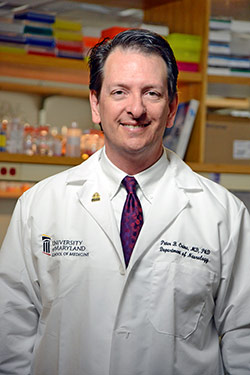 A private donation of $750,000 from Richard L. Taylor, MD '75 and Kathryn A. Taylor, matched by MEIF, has created the Dr. Richard and Kathryn Taylor Endowed Professorship in Neurology, has been awarded to Peter B. Crino, MD, PhD, Professor and Chair of the Department of Neurology at the UMSOM.
A private donation of $750,000 from Richard L. Taylor, MD '75 and Kathryn A. Taylor, matched by MEIF, has created the Dr. Richard and Kathryn Taylor Endowed Professorship in Neurology, has been awarded to Peter B. Crino, MD, PhD, Professor and Chair of the Department of Neurology at the UMSOM.
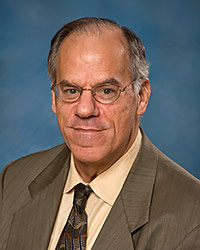 Dr. Taylor, President and Co-Founder of Taylor Medical Group, is an alumnus and member of the UMSOM Board of Visitors. “We’re so excited and pleased about this incredible development!” said Dr. Taylor. “Dr. Crino is truly a valuable asset for our remarkable Department of Neurology, and we are honored to be able to help support his important work.”
Dr. Taylor, President and Co-Founder of Taylor Medical Group, is an alumnus and member of the UMSOM Board of Visitors. “We’re so excited and pleased about this incredible development!” said Dr. Taylor. “Dr. Crino is truly a valuable asset for our remarkable Department of Neurology, and we are honored to be able to help support his important work.”
Dr. Crino is a world-renowned physician-scientist who is an expert in the field of translational neuroscience research and has a long history of federal NIH and Department of Defense funding, as well as entrepreneurial endeavors. He directs a six-person basic science laboratory that is currently funded by the National Institutes of Health, and focuses on understanding the molecular mechanisms of epilepsy and autism in a number of genetic neuro-developmental disorders. Dr. Crino is also the principal investigator of a number of collaborative multi-investigator grant applications that thematically link basic and translational UMSOM scientists who are studying the genetics of epilepsy and autism. His leadership and international reputation allow for large grant applications to be considered by the NIH.

Dr. Crino has been a highly attractive physician-scientist to numerous academic medical institutions. The Taylor Professorship will allow UMSOM to retain him, while providing Dr. Crino with the dedicated time and resources to foster innovation and discovery in the field of translational neurosciences. He will focus on new applications toward clinical use and potential commercialization to bring new intellectual capital to the state of Maryland.
The Charles Gordon Smith Endowed Professorship for HIV Research
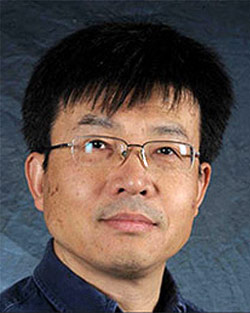 A bequest of $750,000 from the Estate of Charles G. Smith, matched by MEIF, has created the Charles Gordon Smith Endowed Professorship for HIV Research, which has been awarded to Lishan Su, PhD of UMSOM’s Department of Pharmacology and the Institute of Human Virology.
A bequest of $750,000 from the Estate of Charles G. Smith, matched by MEIF, has created the Charles Gordon Smith Endowed Professorship for HIV Research, which has been awarded to Lishan Su, PhD of UMSOM’s Department of Pharmacology and the Institute of Human Virology.
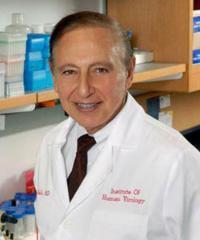 Smith, who was a staff accountant at Price Waterhouse, had read an article in 2001 about Robert C. Gallo, MD, the Homer and Martha Gudelsky Distinguished Professor in Medicine and co-founder and director of Institute of Human Virology (IHV) at the UMSOM. This article sparked Mr. Smith’s growing interest in Gallo’s work and eventually, his desire to fund HIV research at the IHV through his bequest. “Charlie was a philanthropist and wanted to help so many,” noted a close friend of Mr. Smith, who requested anonymity. “Dr. Gallo had made an impact for Charlie, as much as Charlie is now making an impact for Dr. Gallo.”
Smith, who was a staff accountant at Price Waterhouse, had read an article in 2001 about Robert C. Gallo, MD, the Homer and Martha Gudelsky Distinguished Professor in Medicine and co-founder and director of Institute of Human Virology (IHV) at the UMSOM. This article sparked Mr. Smith’s growing interest in Gallo’s work and eventually, his desire to fund HIV research at the IHV through his bequest. “Charlie was a philanthropist and wanted to help so many,” noted a close friend of Mr. Smith, who requested anonymity. “Dr. Gallo had made an impact for Charlie, as much as Charlie is now making an impact for Dr. Gallo.”
As the inaugural Smith Endowed Professor, Dr. Su will join the IHV to become its director of the Division of Virology, Pathogenesis, and Cancer (VPC), leading basic and applied research in HIV/AIDS and other virally linked diseases, as well as in vaccine development. He has conducted extensive research experience in human immunology, virology, and stem cell biology. He has made important contributions to several areas of human immunology and infectious diseases, particularly in developing humanized pre-clinical models to study human immuno-pathology of chronic virus infections. In recent years, Dr. Su has discovered and focused on the pDC-interferon axis in the pathogenesis and therapy of chronic HIV & HBV/HCV infections, autoimmune diseases, and cancers.

“The E-Nnovation Fund has played such a valuable role in helping us retain, attract, and advance some of the leading physicians and scientists in the nation,” said Dean Reece, who is also the Executive Vice President for Medical Affairs, UM Baltimore, and the John Z. and Akiko K. Bowers Distinguished Professor. “We are grateful to the MEIF and the Maryland Department of Commerce for helping to provide these outstanding faculty members in neuroscience and infectious disease with the critical resources they need to sustain and expand their research and discovery well into the future.”
About the University of Maryland School of Medicine
Now in its third century, the University of Maryland School of Medicine was chartered in 1807 as the first public medical school in the United States. It continues today as one of the fastest growing, top-tier biomedical research enterprises in the world -- with nearly 50 academic departments, centers, institutes, and programs; and a faculty of more than 3,000 physicians, scientists, and allied health professionals, including members of the National Academy of Medicine and the National Academy of Sciences, and a distinguished two-time winner of the Albert E. Lasker Award in Medical Research. With an operating budget of more than $1.2 billion, the School of Medicine works closely in partnership with the University of Maryland Medical Center and Medical System to provide research-intensive, academic and clinically based care for nearly 2 million patients each year. The School of Medicine has more than $563 million in extramural funding, with most of its academic departments highly ranked among all medical schools in the nation in research funding. As one of the seven professional schools that make up the University of Maryland, Baltimore campus, the School of Medicine has a total population of nearly 9,000 faculty and staff, including 2,500 student trainees, residents, and fellows. The combined School of Medicine and Medical System (“University of Maryland Medicine”) has an annual budget of nearly $6 billion and an economic impact more than $15 billion on the state and local community. The School of Medicine, which ranks as the 8th highest among public medical schools in research productivity, is an innovator in translational medicine, with 600 active patents and 24 start-up companies. The School of Medicine works locally, nationally, and globally, with research and treatment facilities in 36 countries around the world. Visit medschool.umaryland.edu.
Contact
David Beaudouin, MA, MA
Office of Public Affairs & Communications
University of Maryland School of Medicine
410-706-4348
dbeaudouin@som.umaryland.edu
Related stories
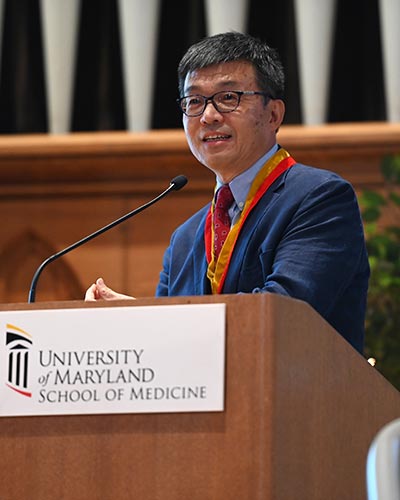
Wednesday, November 09, 2022
Lishan Su, PhD, Invested as the UMSOM Charles Gordon Smith Endowed Professor for HIV Research
With his 92-year-old mother watching via live stream from the city of Qingdao, China, and an in-person audience of friends and colleagues gathered in Westminster Hall, Lishan Su, PhD, an internationally prominent virologist and immunologist at the University of Maryland School of Medicine’s (UMSOM) Institute of Human Virology (IHV), was invested as the Charles Gordon Smith Endowed Professor for HIV Research. Dr. Su is a Professor in the Departments of Pharmacology and Microbiology & Immunology at UMSOM’s IHV, who also serves as the Director of the Division of Virology, Pathogenesis, and Cancer at the Institute.

Monday, October 18, 2021
University of Maryland School of Medicine Neurology Chair Peter B. Crino, MD, PhD, Receives Prestigious Neuroscience Award
University of Maryland School of Medicine (UMSOM) Dean E. Albert Reece, MD, PhD, MBA announced today that Peter B. Crino, MD, PhD, Professor and Chair of UMSOM’s Department of Neurology, has received the Javits Neuroscience Investigator Award (R37), which provides $2.7 million in total funding.
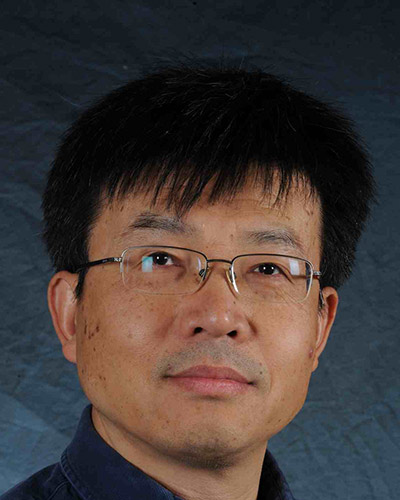
Friday, November 13, 2020
Leading Human Immunology and Infectious Disease Experts to Join UM School of Medicine's Institute of Human Virology
Robert C. Gallo, MD, the Homer & Martha Gudelsky Distinguished Professor in Medicine at the University of Maryland School of Medicine (UMSOM) and Co-Founder & Director of the UMSOM’s Institute of Human Virology (IHV), announced today that a team of leading scientists in human immunology, virology and stem cell biology, led by Lishan Su, PhD, joined the Institute of Human Virology on October 1 with academic appointments in the UMSOM Department of Pharmacology. As part of the Maryland E-Nnovation Initiative Fund (MEIF) to recruit top research faculty and a donation to the Institute of Human Virology from the Charles Gordon Estate, Dr. Su will be receiving the Charles Gordon Smith Endowed Professorship for HIV Research. Dr. Su will also head the Institute of Human Virology's Division of Virology, Pathogenesis and Cancer.

Friday, December 06, 2019
University of Maryland Medicine Launches Treatment Centers for Adult Neurodevelopmental Disabilities
The University of Maryland School of Medicine (UMSOM), University of Maryland Medical Center (UMMC), and the Tuberous Sclerosis Alliance (TS Alliance) have joined together to launch first-of-a-kind centers in Maryland to treat adults with neurodevelopmental disabilities, such as autism.
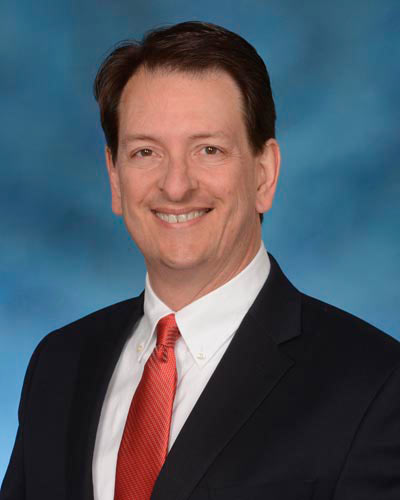
Monday, March 21, 2016
Leading Neuroscientist Dr. Peter B. Crino Appointed Chair of UM SOM Department of Neurology
University of Maryland School of Medicine (UM SOM) Dean E. Albert Reece, MD, PhD, MBA, announced today that Peter B. Crino, MD, PhD, professor and vice chair for research at Temple University School of Medicine’s Shriners Hospital Pediatric Research Center, and an internationally-recognized physician-scientist in developmental brain disorders, has been appointed Chairman of the UM SOM Department of Neurology. Dr. Crino succeeds Interim Chair Barney J. Stern, MD, Professor of Neurology, who had replaced William Weiner, MD, when he passed away in 2012. Dr. Stern will continue as Vice Chair and Professor of the Department of Neurology.
